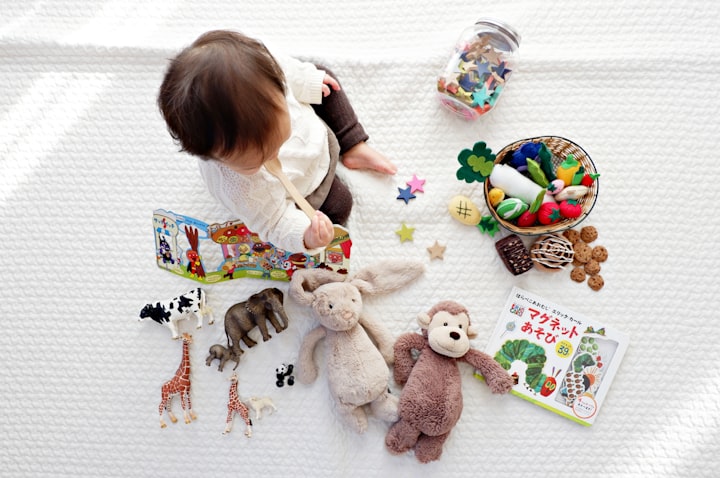Navigating the Terrible Twos: Strategies for Toddler Tantrums
Understanding and Dealing with Challenging Behaviors

Introduction:
The toddler stage is a time of significant growth and development for children, but it can also be accompanied by challenging behaviors, commonly referred to as the "terrible twos." Toddler tantrums can be overwhelming for parents as they navigate through this phase. In this article, we explore strategies for understanding and dealing with toddler tantrums, helping parents foster a positive and supportive environment for their little ones.
1. Understanding the Toddler Brain:

The first step in dealing with toddler tantrums is to understand that they are a normal part of development. Toddlers are experiencing intense emotions and struggling with their limited communication skills. Recognizing that tantrums are a way for them to express their frustrations can help parents respond with empathy and patience.
2. Consistent Routine and Structure:

Toddlers thrive on routine and structure. Establishing a consistent daily routine can provide them with a sense of security and predictability, reducing the likelihood of tantrums. Having regular mealtimes, nap times, and playtimes helps toddlers feel more in control and minimizes meltdowns.
3. Clear and Simple Communication:

Since toddlers have limited language skills, it's important to use clear and simple language when communicating with them. Use short sentences and emphasize positive instructions. Instead of saying, "Don't touch that," say, "Let's touch this instead." Providing clear instructions and options can reduce frustration and promote cooperation.
4. Distraction and Redirection:

When a tantrum seems imminent, distraction and redirection can be effective strategies. Engage your toddler in a new activity or offer them a toy or object that captures their attention. Redirecting their focus helps shift their emotions and prevents the tantrum from escalating.
5. Validate Feelings:

Toddlers need to feel understood and validated. Acknowledge their feelings and empathize with them. Use phrases like, "I understand you're feeling frustrated," or "I see that you're sad." Validating their emotions helps them feel heard and can de-escalate the intensity of a tantrum.
6. Offer Choices:

Providing limited choices can empower toddlers and give them a sense of control. Instead of dictating what they should do, offer them options within reasonable limits. For example, ask if they want to wear the red shirt or the blue shirt. Offering choices allows toddlers to assert their independence and reduces power struggles.
7. Positive Reinforcement:

Positive reinforcement is a powerful tool in shaping behavior. Praise and acknowledge your toddler's positive actions and behaviors. Celebrate small victories and achievements. When they successfully handle a situation without a tantrum, offer specific praise and encouragement. This positive reinforcement reinforces desired behaviors and encourages them to continue making good choices.
8. Model Calmness and Self-Regulation:

As a parent, modeling calmness and self-regulation is essential. Children learn by observing and imitating their parents' behaviors. When faced with challenging situations, remain calm, and demonstrate healthy coping mechanisms. Take deep breaths, use positive self-talk, and employ problem-solving skills. Your calm demeanor can help de-escalate a tantrum and teach your toddler valuable emotional regulation skills.
9. Create a Safe and Calming Environment:

Provide a safe and calming environment for your toddler. Create designated spaces where they can explore, play, and relax. Ensure their environment is free from hazards and clutter that may trigger frustration or overstimulation. A calm environment sets the stage for positive behavior and emotional well-being.
10. Seek Support:

If you find yourself struggling to handle your toddler's tantrums, don't hesitate to seek support. Connect with other parents, join parenting groups, or consult with pediatricians or child development experts. They can offer guidance, reassurance, and additional strategies to navigate through this challenging phase.
Conclusion:
Navigating the "terrible twos" can be a demanding journey for parents. By understanding the toddler's brain, implementing consistent routines, using clear communication, and employing strategies like a distraction, validation, and positive reinforcement, parents can effectively navigate toddler tantrums. Remember, this phase is temporary, and with patience, love, and support, both parents and toddlers can emerge stronger and better equipped to face future challenges together.
About the Creator
The Happy Parent
A blog that celebrates the positive aspects of parenting and offers solutions for common problems.






Comments
There are no comments for this story
Be the first to respond and start the conversation.